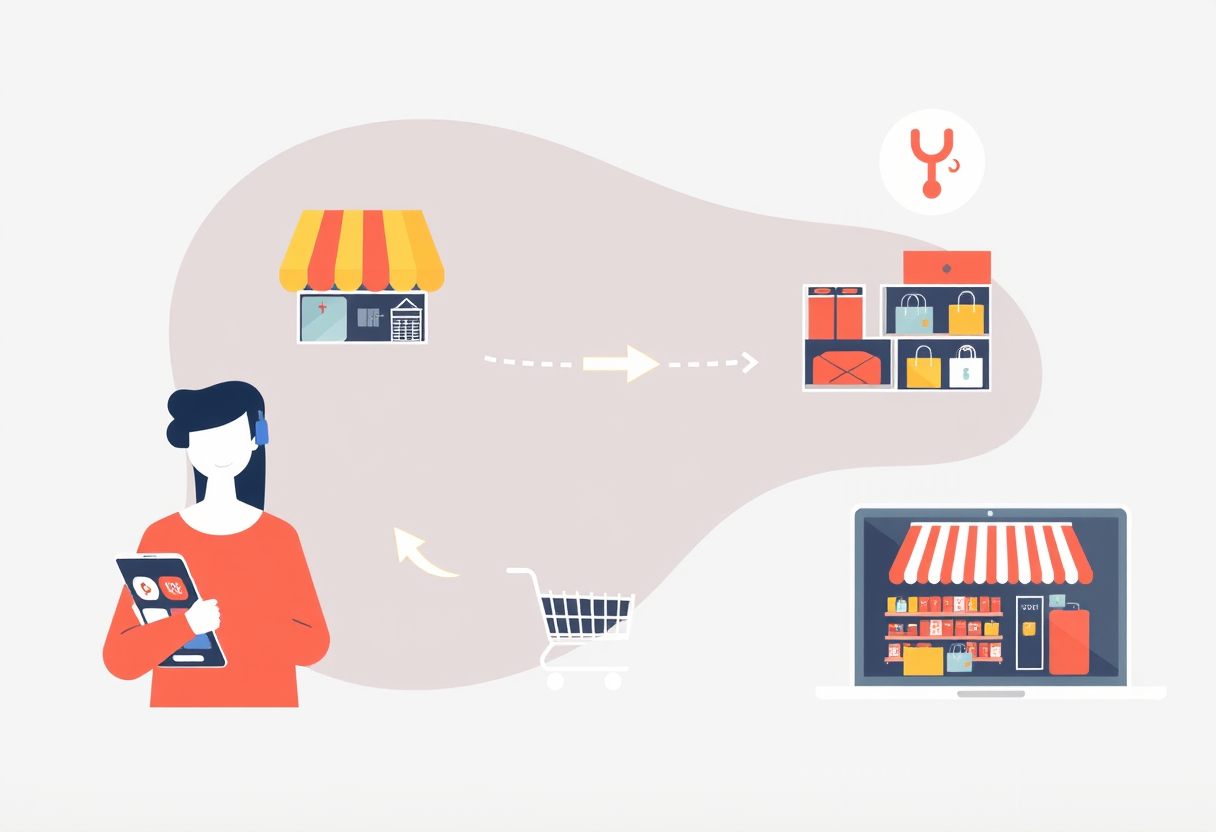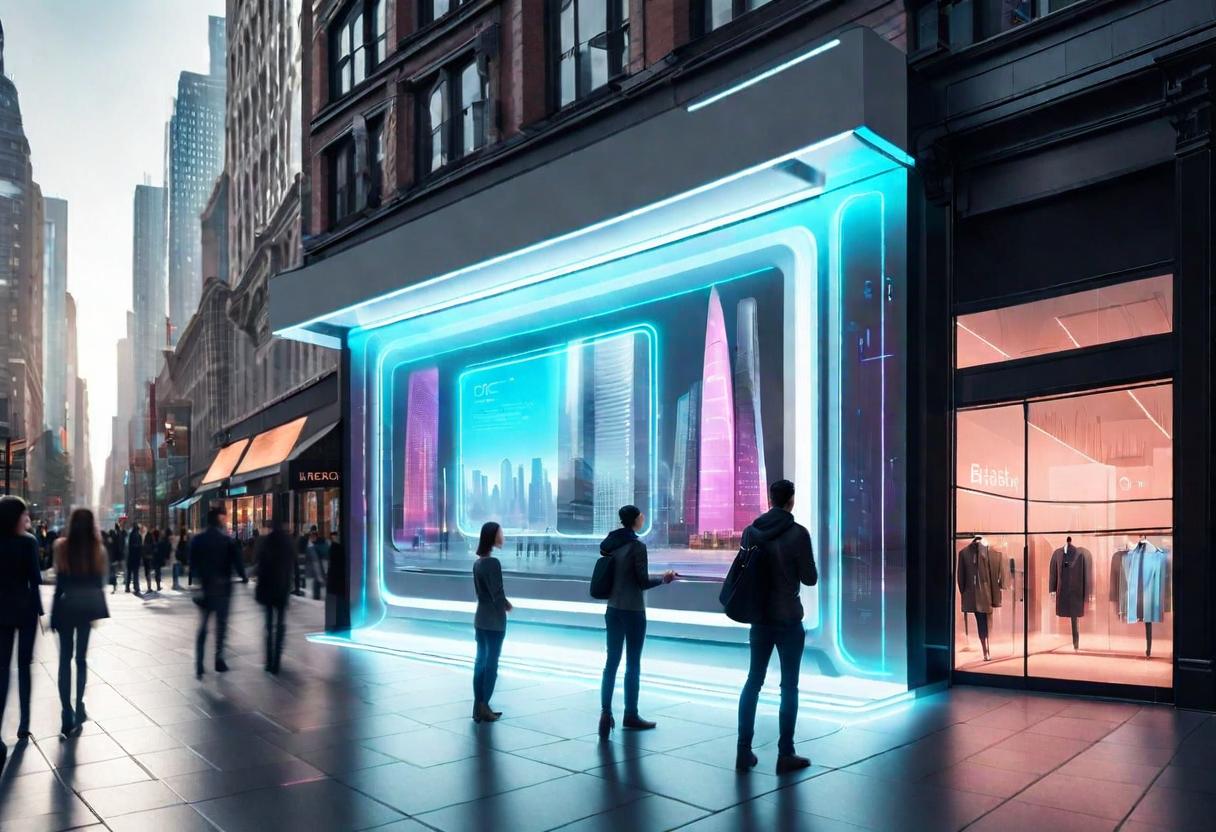The process of e-commerce adaptation is continuous and rapid due to the modern environment’s levels of digitalization. Hence, due to the introduction of new technologies and changes of consumer habits, the online business needs to progress. Being ‘Online’ will no longer be sufficient in the future of e-commerce; it’s about opting for the trends that will dominate the e-commerce market and incorporating them suitably in your online shop or store. In this article, the more important tendencies of the sphere are described, and the ways how to use them further are outlined to guarantee continuous and effective development of business.
1. The Rise of Voice Commerce

Talking commerce is steadily growing as more clients use voice-controlled products such as Amazon Echo, Google Home, and iPhone Siri for purchasing. This arises from the ease of surfing and making purchases without the need for the hands as one can do other activities at the same time.
Why Voice Commerce Matters:
- Convenience: Voice commerce makes buying convenient by using simple voice instructions to make the purchase.
- Personalization: Voice assistants can give customers suitable suggestions based on their previous orders making the customer happy.
- Speed: Voice search saves time because it does not require a user to type which may be costly in terms of time among consumers.
How to Implement Voice Commerce:
- Optimize for Voice Search: To make your online store ready for voice search, you need to use natural language keywords and phrases that people use when speaking.
- Develop Voice-Activated Features: Think about the voice-activated shopping assistant or becoming a partner of voice commerce services to offer uninterrupted shopping.
- Personalize Voice Interactions: Optimize voice assistants and make them promote special product offers based on the client’s profile.
2. Augmented Reality (AR) and Virtual Reality (VR) Shopping Experiences

Another technology is already changing the way consumers engage with products on the internet: that is Augmented Reality (AR) and Virtual Reality (VR). These technologies include new ways of buying products, where customers can see how will the product suit them in the real world or how can they move around in virtual showrooms.
Why AR/VR Matters:
- Enhanced Product Visualization: AR can help customers visualize how products would look in their space, on the other hand, VR can give customers an almost in-store like effect thus minimizing risks associated with online shopping.
- Increased Engagement: It also means that through the interactions with AR/VR experiences, customer attention can be grabbed and the time spent on the website can be increased hence increasing conversion rates.
- Reduced Returns: The use of AR/VR can therefore assist customers to make the right decisions due to the realistic view of the products thus decreasing the chances of returns.
How to Implement AR/VR in Your Online Store:
- Introduce Virtual Try-Ons: Some of the features possible to use in augmented reality can be applied to help customers ‘dress’ in clothes products, or ‘paint’ their faces or hair with some make-up or dye products before they actually do it.
- Create Virtual Showrooms: Create an interactive virtual reality showroom in which the customer is immersed in the ‘; furniture store’ environment for the just released products.
- Leverage AR for Product Visualization: AR can be used to place furniture, home decorations, or any relevant product in the house so that the clients see how they look before purchasing them.
3. Artificial Intelligence (AI) in Customer Service

AI is shifting the dynamics of customers’ engagement in e-commerce since it guarantees swift, efficient, and personalized customer relations. The digital innovations of today, especially chatbots, virtual assistants, and recommendation engines, are virtually indispensable today.
Why AI Matters:
- 24/7 Customer Support: The use of AI chatbots can give timely answers to clients’ questions, even if they are provided 24/7 without including human assistance.
- Personalized Shopping Experience: AI can effectively understand the needs of the customers and provide them with products that have potential purchases improving the chances of sale.
- Improved Customer Satisfaction: Through the use of AI-driven tools, the client does not have to make a request for help before being assisted, and this improves customer satisfaction.
How to Implement AI in Your Online Store:
- Deploy AI Chatbots: Implementation of AI Chabot on the websites that are meant to address customer, product, and transaction related issues.
- Use AI for Personalized Marketing: Use natural language with customer interactions by implementing an artificial intelligence program to analyze datasets as well as generate marketing messages that would be appealing to the customers.
- Implement AI-Powered Product Recommendations: New applications shall be developed where customers have suggested products that they have browsed or previously bought or are interested in.
4. The Impact of Omnichannel Retailing

Omnichannel retailing refers to the blending of the different shopping modes, physical and digital, to form one single shopping experience. Consumers are no longer using a single platform when it comes to shopping and thus omnichannel now forms the vanguard of any business entity.
Why Omnichannel Retailing Matters:
- Consistent Customer Experience: Thus, omnichannel retailing creates a strong and unified customer experience without regard to the channel the client uses, including the Website, an application, or a physical store.
- Increased Customer Loyalty: This way, companies using the web and all other channels of communication for their operations can ensure that they have increased their bond with their customers.
- Higher Conversion Rates: Such techniques increase the probability of order completion since the customer can easily change between one channel or the other as he or she completes the process, thus increasing the chance of getting more conversions.
How to Implement Omnichannel Retailing:
- Integrate Online and Offline Channels: Integrate Online and Offline Channels: Your online store, mobile application, and physical store should offer the ability to begin a purchase on one of them and finish it on another.
- Offer Click-and-Collect Options: Allow customers to purchase their products online and then choose to pick them up from the physical stores; a blend of online shopping and store-bought experience.
- Personalize Across Channels: Implement CRM to adapt the services and the presented range to the client’s preferences and interests in both the web shop and the real store.
5. Sustainability and Eco-Friendly Practices

Corporate social responsibility is asserting itself as a major driver of buyers’ decision making as more customers demand environment and socially friendly products. Organizations being involved in the selling of products and services that embrace sustainability and environmental responsibility standards else also enjoy the benefits of catering to a growing niche of the green customer.
Why Sustainability Matters:
- Consumer Demand: It is seen that consumers are becoming more conscious about the brands that they opt to buy products from and sustainable and ethical practices are becoming more prominent.
- Brand Loyalty: The research examining the strategic management of Australian organizations revealed that companies should focus on sustainability since it can increase customers’ loyalty and create a competitive advantage.
- Regulatory Compliance: It was also identified that as governments of the world continue enacting stringent environmental policies and standards, the application of sustainable business practices enables organizations to adhere to these policies and hence, reduce the resultant penalties.
How to Implement Sustainable Practices in Your Online Store:
- Source Eco-Friendly Products: Provide products that are friendly to the environment, are sourced in the right manner, and are eco-friendly.
- Reduce Packaging Waste: It is advisable to use and package products in ways that minimize the use of packaging, recyclability, or biodegradability which customers care about.
- Promote Green Initiatives: Include sustainability aspects into your webpage and social network accounts, for instance, carbon-neutral shipment services or affiliations with environmental non-profit organizations.
6. Future-Proofing Your E-Commerce Business

It is therefore important that as you prepare your business for the future you include these trends and technologies in your e-commerce business. Being proactive will not only increase competitiveness but also guarantee the company’s sustainable growth in the highly digitalized environment.
How to Future-Proof Your E-Commerce Business:
- Stay Informed: It is good practice to regularly read updated blogs and articles on e-commercial activities, attend webinars, and join online forums.
- Invest in Technology: The next step is to make sure that you are actually providing the best experience you can through your e-commerce platform and tools, which in turn means upgrading your platform and tools as often as possible if it will benefit the customer in the long run.
- Focus on Customer Experience: Prioritize customer satisfaction by providing personalized, seamless, and convenient shopping experiences across all channels.
- Adapt to Change: Change directions and adapt the business plans in light of changing trends and the market trends that consumers show.
Conclusion
The further development of e-commerce holds many promising prospects for modern commerce proposed to companies ready to adapt and evolve. This way, you can adapt to how close to perfect the experiences are or how popular they are as of now—voice commerce, AR/VR shopping, AI as a form of customer service, omnichannel retailing, and sustainability amongst others—to prepare your online store for the future. The application of these trends also makes a company more competitive as well as provides customers with a unique, appealing, and satisfying shopping experience.
Allow me to introduce my company: OneDevSolution, a company focused on providing solutions for companies, especially in the context of the constantly developing e-commerce market. Whether you are starting to use new technologies for business, working on the site’s performance, or applying green chemistry to your online store, our team will help you achieve success in e-commerce. Call us now to know how can we secure your online business to survive in a world of growing e-commerce market.

